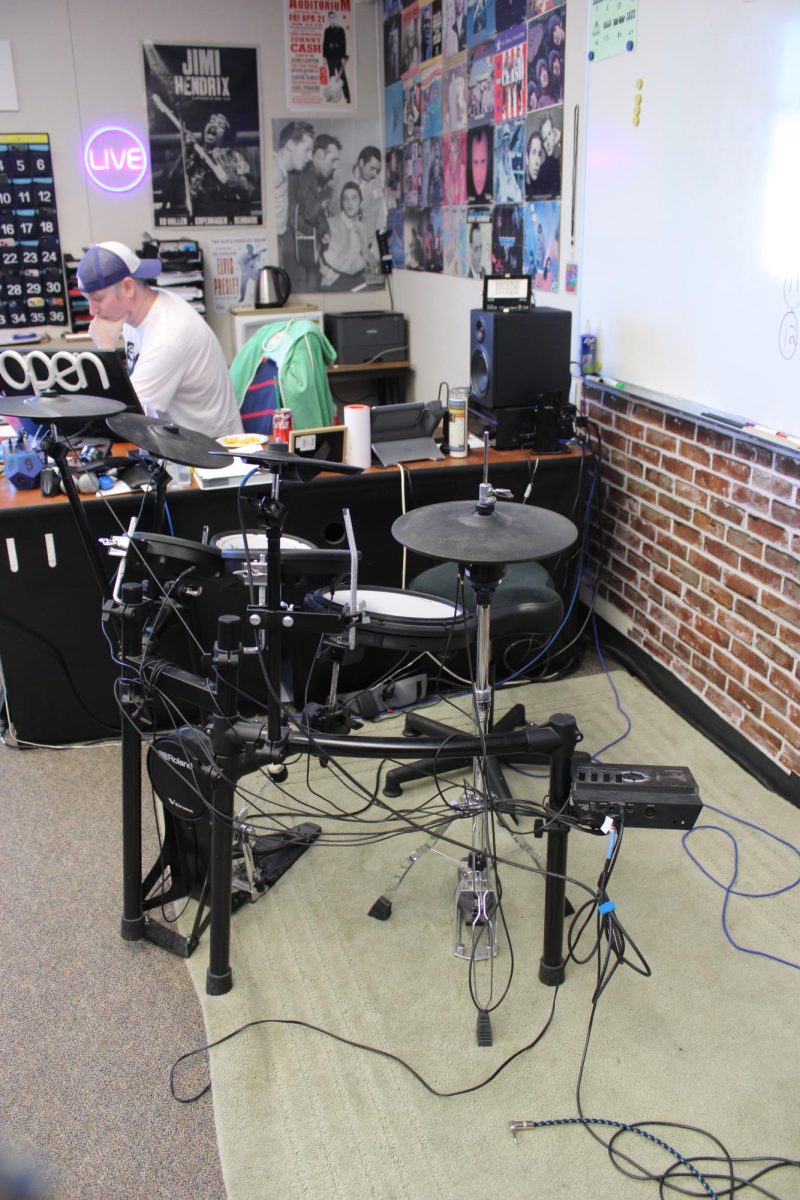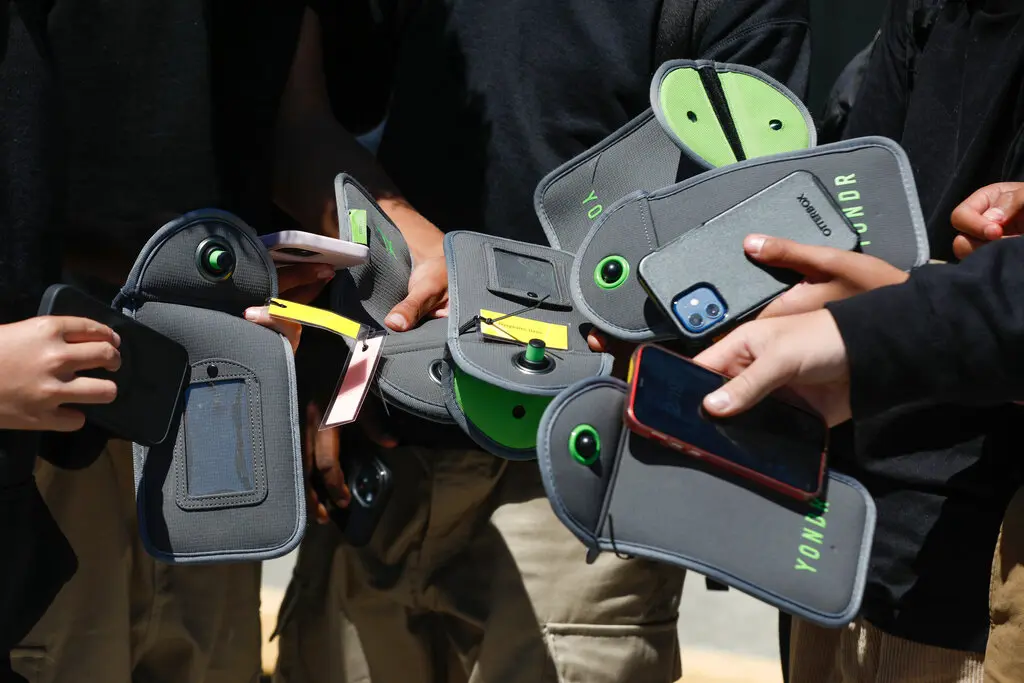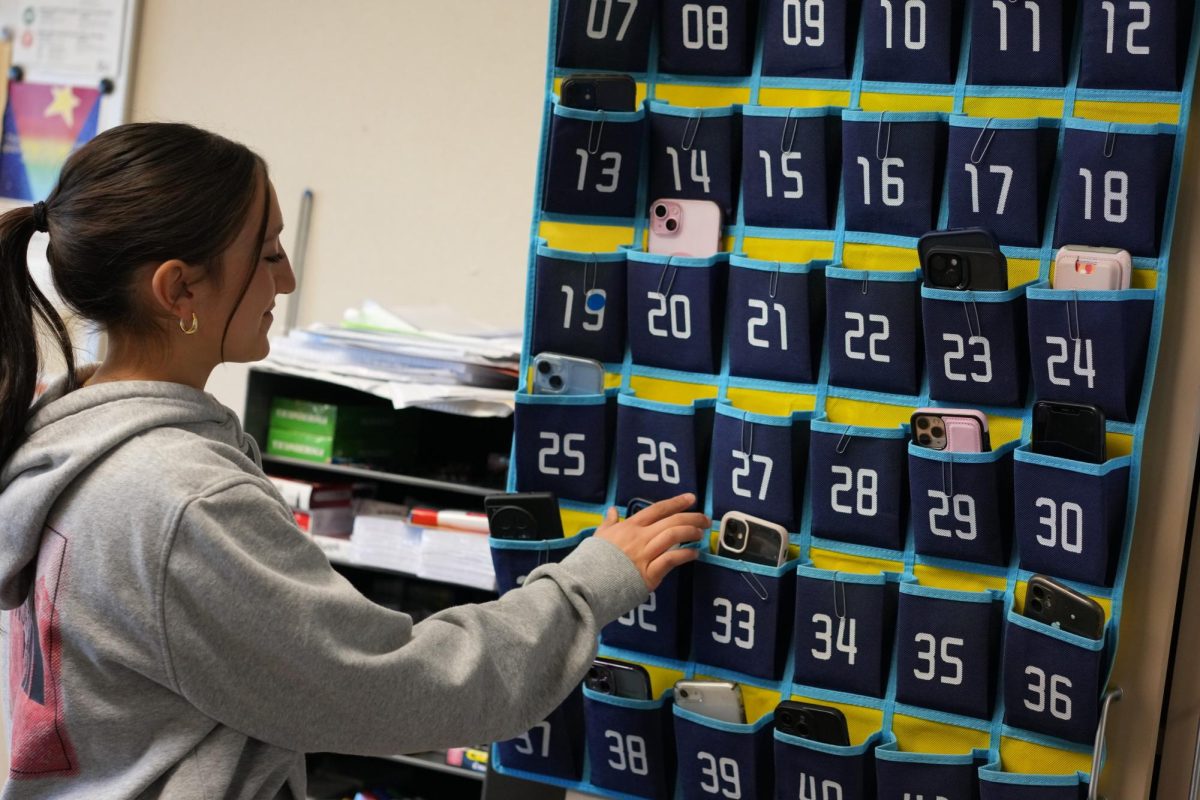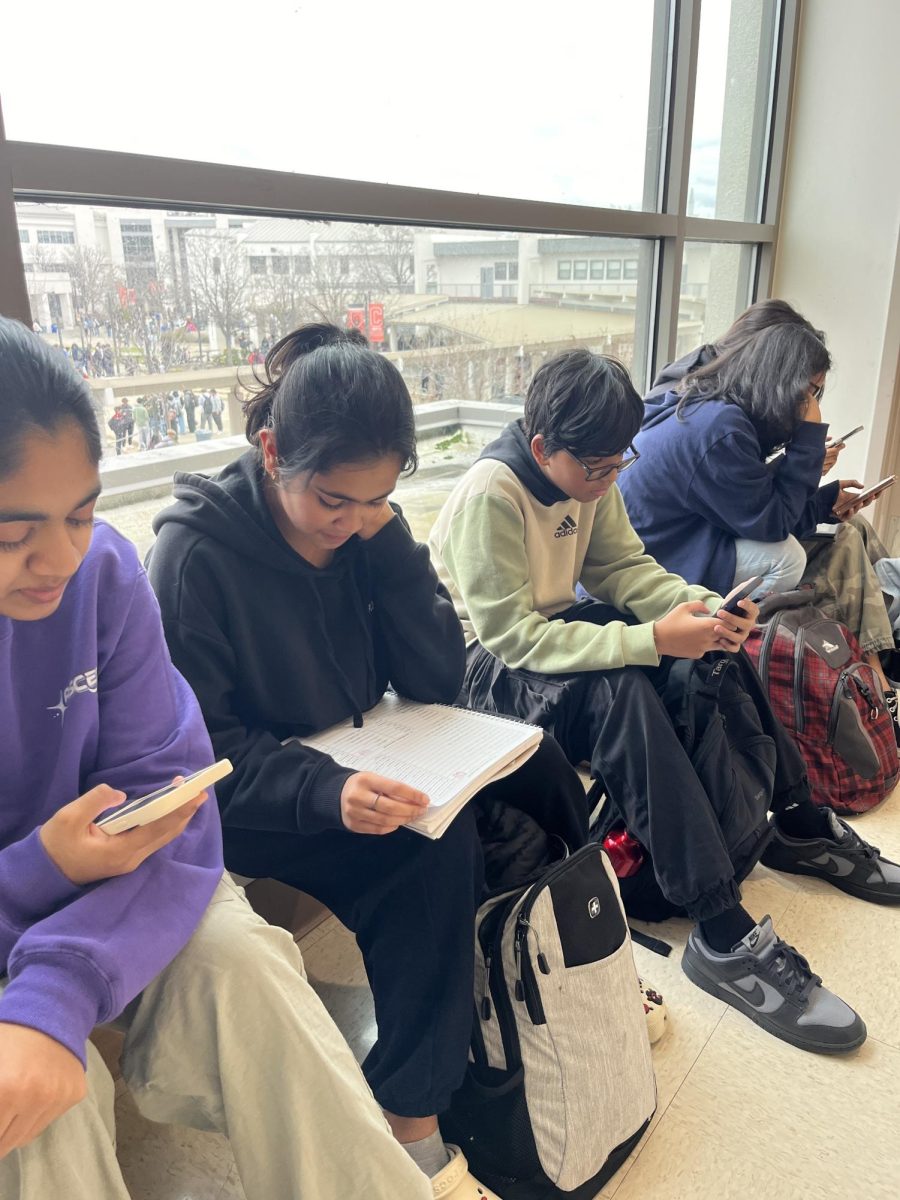Music is inescapable on Cal High’s campus.
Whether it’s pop blasting from a student’s AirPods, lo-fi strumming from a teacher’s speakers, or classical streaming from the band room, music is everywhere. But the question is, should it be?
Some Cal teachers allow students to listen to music with their headphones in class, while others play music out loud for the entire class to enjoy. Then there are some teachers who ban all music from their classrooms.
A Californian survey of teachers found that 30 of the 40 teachers who responded allow students to listen to their own music most of the time, if not all the time. All but six teachers who responded indicated they play music aloud during their class at times.
Most teachers have attempted to find the line between allowing students to enjoy the benefits of music and ensuring students are not distracted from their schoolwork.
One solution is having teachers play music aloud but not allowing students to play music on their own devices, which is what AP Government teacher Brandon Andrews usually does.
“I think it depends on the subject of the class,” Andrews said. “If there’s truly an activity that is just one student focused I’m okay with it. But since the majority of what we do in my class is students interacting with each other, I feel like [music] takes away from [learning].”
Chemistry teacher Jack Sarkany thinks playing music aloud creates a good classroom atmosphere, but when students wear earbuds they become isolated from the rest of the class.
“I think music is a good background atmosphere for the entire classroom, because when it’s quiet it feels awkward and creepy,” Sarkany said. “[But] when students have their earbuds in, it basically says, ‘don’t bother me, don’t talk to me, leave me alone’, which I think we have that enough already.”
Some students agree that listening to music through headphones in class can be isolating, making the classroom environment less welcoming.
“I feel like sometimes people having headphones in makes them harder to talk to because I don’t want to interrupt their music,” junior Niyati Gupta said. “It gives off the vibe that they’d rather be left alone.”
Other students believe the issue goes deeper than just isolation.
“I don’t listen to music in class because I think it’s disrespectful,” freshman Olivia Pearson said. “The teacher’s teaching. You’re supposed to be listening to them and not your music. It’s like they’re putting in an effort to teach you, but you’re not paying attention.”
Math teacher Surbhi Jain agrees. Students are not allowed to listen to music in her class because she believes if students have headphones in, they are not listening. She also believes music makes it harder to focus.
Spanish teacher Jamie Brindley uses Spanish songs as a tool to help students, but she said she generally doesn’t allow students to listen to their own music.
“In my class, I want them to be completely immersed in Spanish,” Brindley said.
Though teachers may not always be open to students playing their own music during instructional time, many are accommodating during independent work time.
Economics teacher Stephen Farwell has students put their phones in the front of the classroom while he is lecturing or while students are working on any other activities requiring full attention. But he allows them to listen to their own music during independent work and plays music aloud as well.
“I think having that background noise makes students feel more comfortable,” Farwell said. “Just having something, otherwise it just gets really weird hearing nothing.”
Most teachers agree that music, for some students, helps motivation, sets a positive mood, and calms them down.
“I think it helps set the tone of the classroom,” Andrews said. “I think music is an extension of feelings and a good way to connect with students and subconsciously relax the environment of the class.”
Many students believe the decision of whether music is allowed in classes should be up to students.
“When it comes to listening to music in class, I think [students] should make a responsible and informed decision whether or not [they] can handle that,” senior Kaartik Tejwani said.
According to a study conducted by the MIND laboratory at Northeastern University, listening to music may enhance studying and memorization, which may be another reason why teachers are usually more welcoming to students listening to their own music during independent work time.
“I definitely think it helps academically,” Brindley said. “It can help you remember things and help you memorize because when we learn songs, we know them forever.”
Many students echoed this sentiment, saying that music improves their experience in school.
“I find listening to music a lot more calming and I can stay focused when I have music,” junior Kea Kawanabe said.
Music has been proven to help lower heart rates and help with stress management and relaxation, according to an article published by Harvard Medical School in 2021. The same article indicates that music also has the capabilities of lowering blood pressure and calming the nervous system.
Some Cal students often use music for these health benefits and believe them to be effective.
“When I get really nervous or something, if I can’t solve something, I just put on music and it calms me down,” sophomore Becca Penno said.
Students have also said music can serve as a source of motivation.
“Music helps me stay engaged and interested in my studies, and makes the learning process more enjoyable,” sophomore Joshua Tuitupou said.
The problem with students playing their own music seems not to lie with the music itself, but with the devices the music is played on. Both Andrews and Brindley agree music is a beneficial tool for students, but the issue is students become too distracted with their phones.
“If they’re in their own zone, they’re not paying attention and engaging, that’s what I care more about,” Andrews said. “When you’re in my classroom, I try to get as much learning done as possible.”
Many students understand the possibility of distraction, but still feel they work better with music.
“I personally don’t listen to music during school because I get easily distracted and then I don’t pay attention in class, and it just makes things harder,” Gupta said.
Added Kawanabe, “Some kids don’t pay attention, but I feel like some kids use it as a resource. I think teachers should take into account that some kids [work] better with music.”
Teachers bring tunes to classrooms
March 28, 2024
Brandon Andrews keeps a drumset in his room for his band.
More to Discover
About the Contributors

Shelly Parekh, Online Editor
Senior Shelly Parekh is back for her second year with The Californian, this time as both one of the Online and Podcast editors. She’s looking forward to another great year of publishing stories as well as fawning over the greatest Editor-in-Chief ever, Ylin Zhu. When she isn’t busy fangirling, she loves to swim on both a club and Cal’s team, read murder mysteries, and listen to 2000’s music. If she’s not doing any of that, she’s probably sound asleep.
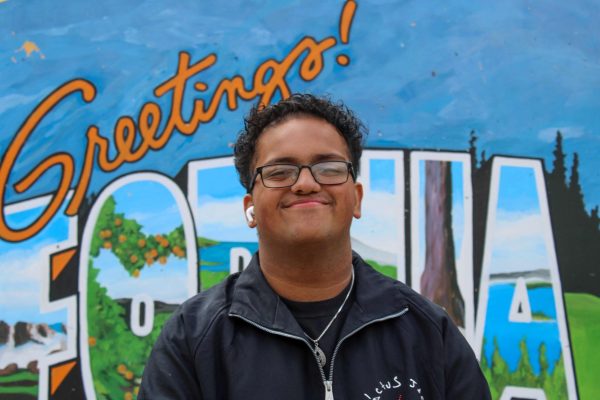
Zak Syed, Assistant Features Editor
Zak Syed is a first year assistant features editor but his second year in the newspaper classroom. He is really excited about being the featured editor and plans to make amazing stories. Zak has a big family with 5 older siblings. He loves to play basketball and to hangout with friends in his free time. He wishes to have a good year as a junior and wants to make his friends and family proud

Bekah Gracer, Photographer
Bekah Gracer is a senior and a first year photographer for The Californian. She has been in the Photo Advanced class for 2 years and loves photography. She is excited to learn how to use digital cameras and do sports photography.
